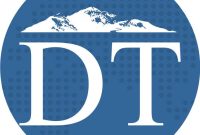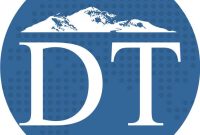It was quite a festive atmosphere when the National Orientation Agency (NOA) came to the state-run University of Osun (UNIOSUN). Their mission: educate students about the significance of the National Values Charter. Eagerly, the students sought information on this charter and how they could adopt these values effectively.
As one of its key duties, NOA aimed to ensure every citizen understood the essence of the National Values Charter. By visiting educational institutions, such as UNIOSUN, they hoped to inspire all age groups—both youth and adults—to uphold behaviors that define national identity.
Under the guidance of their State Director, Mrs. Bola Morgan, NOA left no stone unturned in enlightening the students. She thoroughly explained the concepts behind the National Values Charter and highlighted its numerous advantages.
The National Values Charter serves as a foundational framework outlining shared norms and standards within society’s social contracts. It stipulates commitments from leaders towards ensuring equity, democratic practices, entrepreneurial spirit, peaceful coexistence, inclusion, liberty, and fair governance. Meanwhile, for ordinary citizens, it emphasizes disciplines including adherence to rules, responsibility toward oneself and others, patience, active participation in community affairs, transparency, ecological consciousness, and perseverance under challenging circumstances.
The social contract operates bidirectionally—one side involves leaders fulfilling their legal obligations and keeping their commitments, while the other entails citizens adhering to their civic and personal responsibilities. Speaking to the students, Morgan stated that her organization came to promote the principles outlined in the National Values Charter, describing this initiative as central to President Bola Ahmed Tinubu’s agenda.
In her speech entitled “Advocating Visitation to Higher Educational Institutes Regarding the National Anthem, National Identity Initiative, National Values Charter, and the New Dawn for Nigeria,” she elaborated on why President Bola Ahmed Tinubu reintroduced the original national anthem, “Nigeria We Hail Thee,” effective from May 29th, 2024—a decision subsequently ratified by both chambers of the National Assembly through legislation.
Morgan highlighted how the verses of the new national anthem aim at fostering citizen empathy and patriotic spirit toward their nation, reflecting the ideals and ambitions of Nigeria’s founders when examined closely. Concerning the National Identity Program, she emphasized that finding common ground amid our varied identities—each person belonging uniquely yet collectively within different ethnic groups—is crucial. She urged seeing these distinctions not as barriers but as sources of strength.
“Therefore, individually, we should possess values, convictions, and standards that shape who we are,” she stated. “This is why the National Identity Project aims to guide all Nigerians—regardless of their social status, ethnic background, or religious affiliation—to embrace the virtues and traditions we once upheld.”
Morgan emphasized the importance of establishing a National Values Charter, created under the direction of NOA’s Director-General, Mallam Lanre Issa-Onilu. Additionally, she informed the students about President Buhari’s Renewed Hope Agenda for Nigerians.
She mentioned that measures such as eliminating fuel subsidies, ending decades-long reliance on this system, introducing compressed natural gas (CNG), implementing student loans through NELFUND, and tax reform initiatives—all aimed at benefiting Nigerian citizens—are currently being implemented.
The University’s Vice-Chancellor, Professor Odunayo Adebooye, expressed appreciation towards NOA for taking decisive action in educating students regarding the National Values Charter. However, he lamented certain unpatriotic actions and destructive behaviors exhibited by some Nigerian nationals, particularly those involving damage to public property nationwide.
Professor Adebooye urged the organization to collaborate with the Federal Ministry of Education to develop an educational program focused on fostering nationalism and civic pride from early education up until higher learning stages.
Associated with negative peace, the insecurity in Rivers State, Nigeria, has had a profound impact, affecting even those closest to home. Despite being God’s gift to humanity, His people failed to recognize Him.
A university student known only as Moyosore stated that the awareness program significantly broadened her perspective. She mentioned having been previously unaware of the National Values Charter but found the initiative enlightening regarding personal responsibilities towards becoming a more effective citizen and understanding leadership expectations.
Another student named Kunle Agboola praised the National Orientation Agency (NOA) for organizing this awareness event centered around the National Values Charter. He emphasized how instilling these values during young people’s formative years would substantially contribute to developing competent future leaders.
The highlight of the session involved recognizing two students—Ojo Israel Oluwasegun and Dorcas Abiola—who showcased their knowledge by reciting stanzas one through three of the National Anthem, thus being acknowledged into the Campus National Values Charter Brigade.
Copies of both the National Values Charter document itself, along with copies of the National Anthem and explanatory materials, were distributed among those attending the gathering and also placed within the institution’s library.
Public policy experts, nonetheless, stated that the initiative undertaken by NOA to educate young people in higher educational institutions about fundamental principles guiding their behavior and choices could bolster their commitment to making correct decisions as they become tomorrow’s national leaders. Mr. Ayo Olanrwaju, a social analyst, commented positively on NOA for fulfilling its duty of redirecting Nigerians, particularly college students. He emphasized that these awareness campaigns conducted within universities across the region will significantly influence the perspectives of youth nationwide.
Agbaje submits his piece from Lagos Island, Lagos. The content is provided by SyndiGate Media Inc.
Syndigate.info
).



